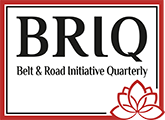EDITORIAL
The strategy of "Blue Homeland" is a strong expression of Turkey's will to protect its territorial integrity, to strengthen its national defense, and to make full use of its maritime economic potential. This strategy aims at disabling the Atlantic plans geared towards confining Turkey to its coastlines, even though it has the longest coastline in the Mediterranean Sea. Worthy of note here is that the Mediterranean Sea is of vital importance for Turkey as its access point to the high seas.
in the present day, Turkey, China, Russia, Syria, and many other countries have started to formulate their own national maritime strategies against the backdrop of a multipolarizing world. üne could thereby observe that the developing world tends to converge towards a common strategy, which consists of securing national coastlines in the first place, and then of gaining access to trade and energy routes in the open seas, while also seeking to establish a common ground for the equal sharing of energy basins among region states.
The present special issue is framed around the theme of "Blue Homeland", which sheds light on this converging understanding in the developing world. This understanding finds a strong echo in the Maritime Silk Road as the most important pillar of the Belt and Road lnitiative. The Maritime Silk Road offers an ample opportunity for developing countries to secure their national sovereignty in the seas. As such, developing countries will be able to build broader partnerships around shared interests, while preventing foreign interventions.
The will of the developing countries to pursue their own national interests, to voice their own policy demands, and to have a say in world affairs is getting stronger at the expense of the US-led Atlantic system, whose overseas activities are but a reflection of its claim to dominate the world's energy routes and basins. The strengthening of this political will serves to resolve even the most gangrenous problems between regional countries in the developing world.
For example, while the Atlantic system represented by the USA-France axis had driven the Nagorno-Karabakh problem into a deadlock for years; Turkey and Russia, with the indirect contribution of lran, have produced a fair solution for the conflict between Azerbaijan and Armenia, in accordance with international law. A similar solution is underway in Syria and Libya.
Another important development that should be noted in this context is how the BRICS countries (Brazil, Russia, lndia, China, South Africa) persist in their commitment to take an active part in the solution of international problems. in the Final Declaration of the 1 2th Summit held in Moscow on November 17, 2020, the BRICS has strongly reasserted its "demand for a fair international order", and emphasized that they will continue to work for accomplishing this demand.
***
With this issue, we celebrate our first year of publication. At the launch of BRIQ, we declared the following:
"BRIQ aspires to become a center of intellectual attraction on a global scale, whose role will be to produce innovative ideas on how the developing world's demand for a fair world order can be met! We aim to become a platform where the efforts of Turkish intellectuals -as part of a leading country in the Asian Age-- will prove decisive! We are also interested in initiating a sustained dialogue that brings together academics, politicians, and the business world on the matter of possibilities and opportunities offered by the Belt and Road lnitiative."
BRIQ's first year of existence has led to four issues that successfully fulfill our journal's original vision and mission. These issues stand out on account of the uniqueness of their design, the scope of their special themes, the scientific depth of featured articles, and the diverse profile of contributors from different countries. Our authors include academics from prominent universities based in countries such as China, Turkey, Russia, lran, Mexico, Australia, and Germany. Our first four issues have featured a total of 35 peer-reviewed articles, essays, interviews, and book reviews.
BRIQ will certainly advance in its quest to become a global platform for scientific exchange, giving voice to scientific perspectives that are often silenced in Atlantic-biased mainstream outlets.
FİKRET AKFIRAT
Editor-in-Chief
